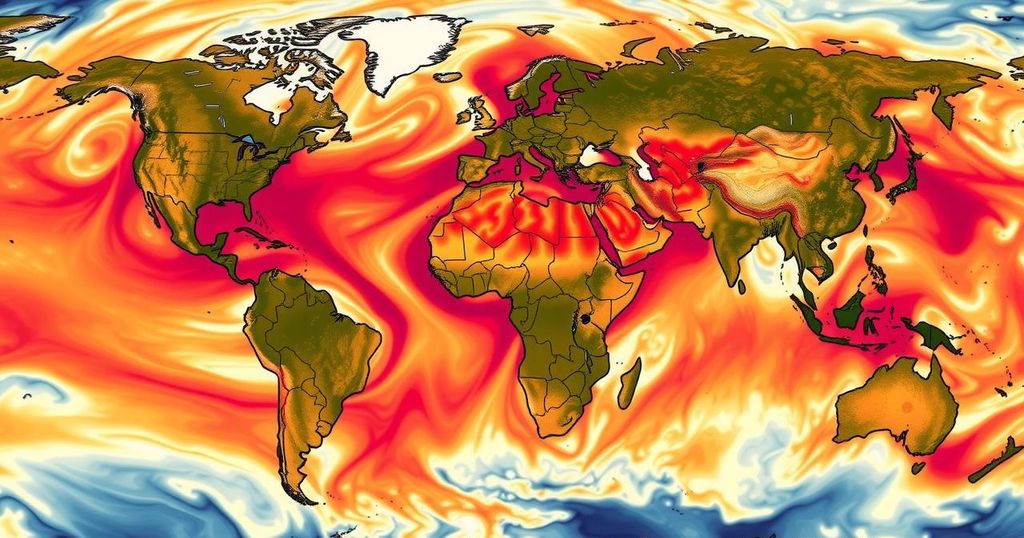2024 Sees an Increase of Over 41 Days of Dangerous Heat Due to Climate Change

In 2024, climate change caused over 41 extra days of dangerous heat globally, marking the year as possibly the hottest on record. The findings link extreme weather events to climate impacts, emphasizing the urgent need for global action to reduce fossil fuel dependency and prepare for worsening conditions, particularly in vulnerable countries.
In 2024, human-caused climate change resulted in an alarming increase of over 41 days of hazardous heat worldwide, contributing to what is being described as the hottest year on record. This assessment, conducted by scientists at World Weather Attribution and Climate Central, highlights that climate change exacerbated extreme weather phenomena such as heat waves, droughts, and intense storms throughout the year. Notably, major temperature records were shattered globally, with increased heat reported in Northern California, Mexico, and parts of West Africa, among other areas.
The analysis revealed that a significant number of extreme weather events, comprising 29 incidents that resulted in at least 3,700 fatalities and displaced millions, had identifiable links to climate change. Critical to the findings was the observation that 26 of these events were heavily influenced by climate factors. The researchers underscored that the persistent reliance on fossil fuels will exacerbate the situation, with disastrous consequences for vulnerable populations, particularly in underdeveloped regions.
In addition to local effects, climate change is projected to push global temperatures closer to the 1.5 degrees Celsius threshold established by the Paris Agreement. This increment not only increases the likelihood of extreme weather but also intensifies the severity and frequency of these events. The findings serve as a stark reminder of the urgent need for global cooperation in mitigating climate change and preparing for its impacts, particularly in vulnerable nations.
The discussion surrounding climate change has increasingly focused on the intensifying heat and extreme weather phenomena that are being recorded worldwide. Due to anthropogenic activities, notably the burning of fossil fuels, global temperatures have risen, leading to severe consequences including dangerous heat waves and natural disasters. The year 2024 has exemplified these challenges, with scientists examining numerous weather events that underscore the risks associated with a rapidly changing climate. Such findings highlight the critical nature of understanding the links between human activity and climate impacts, as well as the vital importance of implementing policies aimed at reducing greenhouse gas emissions.
The findings presented by scientists concerning the extreme weather in 2024 serve as an urgent indication that climate change is actively influencing global weather patterns with deleterious effects on society. The evidence demonstrating that climate change is responsible for an increase in hazardous heat days and extreme events should prompt immediate action from governments and populations worldwide. As we approach critical temperature thresholds, the need for adaptation and mitigation strategies has never been more crucial.
Original Source: www.nationalobserver.com






